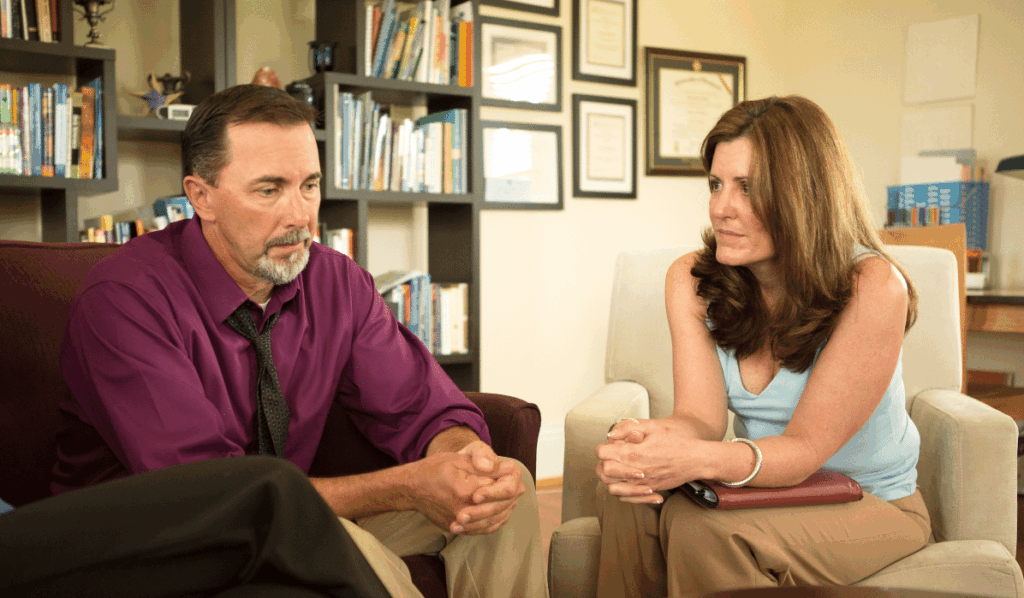
Finding Balance Together: Rediscover What Matters Most
Finding Balance Together: Rediscover What Matters Most
At Maplewood Counseling, we provide inclusive care for people of all races, cultures, and backgrounds, including interfaith, interracial, BIPOC, LGBTQIA+, and blended families. Our therapists bring lived experiences and specialized training to create a safe, affirming space for all.

Have you ever felt weighed down by stress, misunderstandings, or simply the pressure of trying to hold everything together? If so, you’re in good company. Many of us face moments where relationships become strained, hope feels distant, or daily life leaves us feeling more weary than rested.
If this sounds familiar, please know there’s nothing wrong with you—and you don’t have to handle these feelings alone. Everyone’s emotional health matters, including yours, no matter where you come from or what path you’re on.
When Life Feels Overwhelming
It’s common to care for our bodies—see a doctor, eat well, get enough sleep. But when our hearts are heavy or our minds feel unsettled, we might keep these challenges to ourselves, hoping things will just get better.
Yet emotional well-being is at the core of every connection, every decision, and every relationship in our lives.
When emotional pain goes unaddressed, it can quietly change the way we relate to loved ones. A small misunderstanding with a partner can escalate, family routines may become tense, and even moments of joy can feel out of reach.
Recognizing this is not a failure—it’s an act of courage. Support for your mental health is not about “fixing” what’s broken—it’s about finding peace and clarity, giving yourself the care you deserve, and building stronger, more meaningful connections.
How Counseling Opens Doors to Growth
You may wonder: what difference can talking with a counselor make?
At Maplewood Counseling, we believe healing begins with being heard and respected, just as you are.
Counseling isn’t only about sharing struggles—it’s a partnership where you and your counselor explore new ways forward, together. This supportive partnership is built on kindness, confidentiality, and understanding. There’s no need to have all the answers before you begin; we’re here to help you find them, step by step.
During counseling, we can work together to:
- Notice patterns and challenges: Gently identify what’s been getting in the way of comfort and connection.
- Strengthen resilience: Learn practical tools to face stress, setbacks, or relationship difficulties with greater confidence.
- Nurture understanding and empathy: Deepen how you relate to yourself and others, offering space for healing and growth.
A Place for Every Individual, Couple, and Family
No two journeys look alike, and every story matters at Maplewood Counseling. We honor your unique circumstances, backgrounds, and needs—there’s never a “one-size-fits-all” approach. Our counseling services reflect this commitment to personalized, inclusive care.
Individual Therapy: Prioritizing Your Well-Being
Sometimes, the most meaningful change begins with focusing on yourself. Whether you’re experiencing anxiety, sadness, or stress from a life change, individual counseling can help you gain clarity, restore balance, and rediscover hope.
Couples Counseling: Strengthening Connections
Are conversations with your partner leading to more frustration than understanding? Or maybe your relationship feels stuck, disconnected, or in need of a fresh start. Couples counseling supports all partnerships—no matter the season you’re in or the challenges you face. Together, we can find new ways to communicate, resolve conflicts, and nurture the emotional bond that drew you together.
Family Counseling: Growing Together
Healthy families come in many shapes and sizes. We welcome families of all backgrounds and structures. Our supportive environment offers space for everyone’s voice, especially during changes, misunderstandings, or difficult transitions. By working together, families can develop skills for deeper trust and mutual respect, so home truly feels like a safe place for all.
Compassionate Care, No Matter Your Story
Taking that first step toward counseling can be intimidating, especially if you worry about being misunderstood. At Maplewood Counseling, you’ll find empathetic professionals dedicated to listening—never judging.
In-person or online, our sessions are designed with your comfort in mind. We value every individual’s identity, culture, and experience. Our counselors bring years of expertise and a nurturing, trustworthy approach.
You can expect honesty, confidentiality, and unwavering support from the moment you reach out.
When Is It Time for Help?
Have you felt disconnected from yourself or your loved ones? Are you searching for greater peace or understanding in your life?
Therapy isn’t only for “crisis”—it’s a tool for growth, stability, and prevention. Many people discover that starting therapy before things feel unmanageable lays the groundwork for thriving through whatever life brings.
We’ve seen couples rediscover trust, families find new unity, and individuals reclaim joy and direction. These changes are possible—and you can experience them, too.
Frequently Asked Questions
What can I expect during my first session?
Your first session is a welcoming opportunity to share your story, concerns, and goals in a judgment-free space. Together, you and your therapist will discuss what brings you in and outline a supportive plan tailored to your needs.
How long does therapy usually last?
The length of therapy varies for each person or couple. Some find benefit in a few sessions, while others choose ongoing support over several months. We’ll work with you to create a timeline that feels right and continually check in on your progress.
Do you offer virtual sessions?
Yes, we provide both in-person and secure virtual sessions. You can access professional support in the way that’s most comfortable and convenient for you.
Let’s Take the First Step Together
Every person deserves support, respect, and a chance to build healthy relationships. You’re invited to connect with Maplewood Counseling and explore how we can help you, your partner, or your family move forward.
Contact Maplewood Counseling to schedule a conversation—whether you’re interested in individual, couples, or family counseling, we’re here to support your journey in a safe, inclusive environment.
Healing and hope begin with one step. Let’s walk it together.
Helpful Resources
For more guidance on strengthening your relationships, explore these helpful resources:
- Four Toxic Behaviors That Can Ruin Your Relationship – Learn how to identify and avoid harmful patterns in your relationship.
- Signs You Could Benefit from Relationship Therapy – Discover when it might be time to seek professional support.
- Coping with Feelings of Rejection – Practical strategies to rebuild trust and connection after rejection.
At Maplewood Counseling, we are dedicated to supporting individuals, couples, and families in achieving mental wellness. Based in Maplewood, NJ, we proudly serve the Essex County, NJ community and offer statewide telehealth services to ensure accessible care for all. Whether you’re seeking help for anxiety, depression, relationship challenges, or personal growth, our experienced team is here to guide you every step of the way.
We Use HIPAA Compliant Telehealth Platform SimplePractice for our Telehealth Sessions










